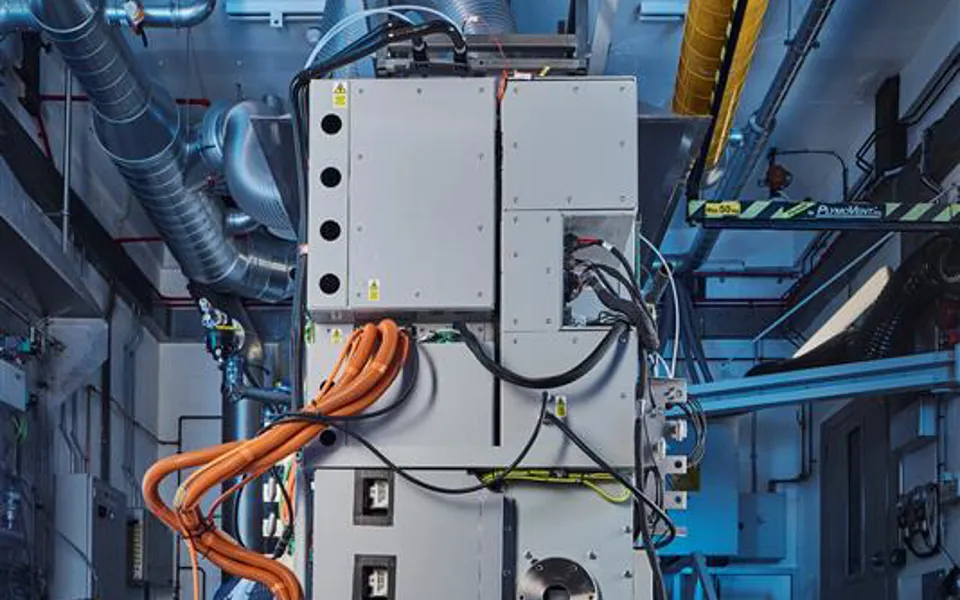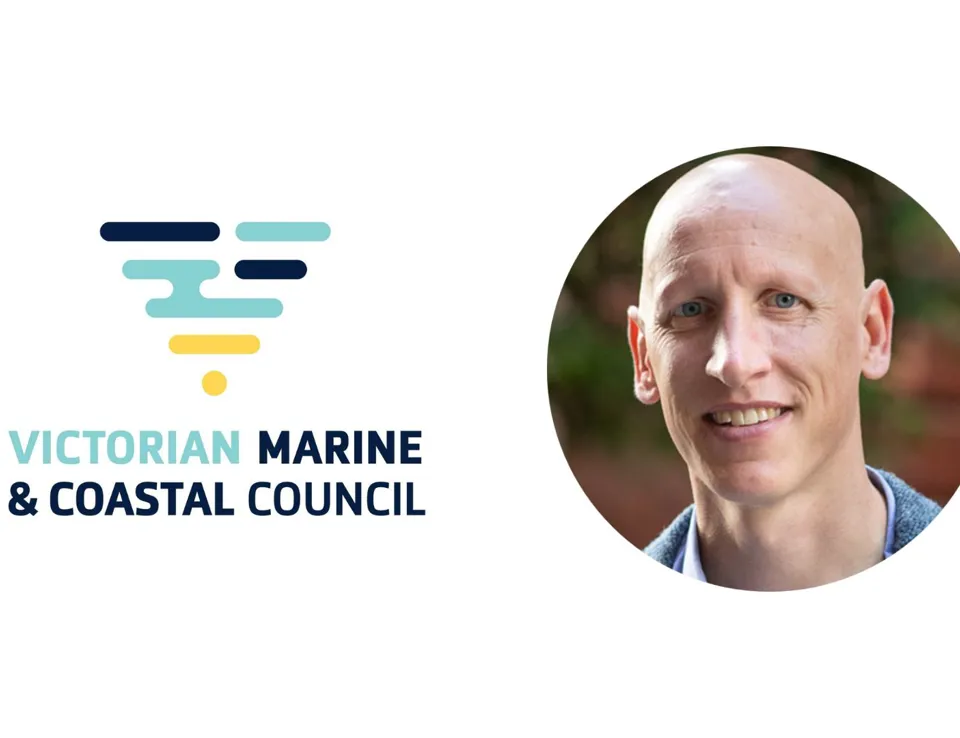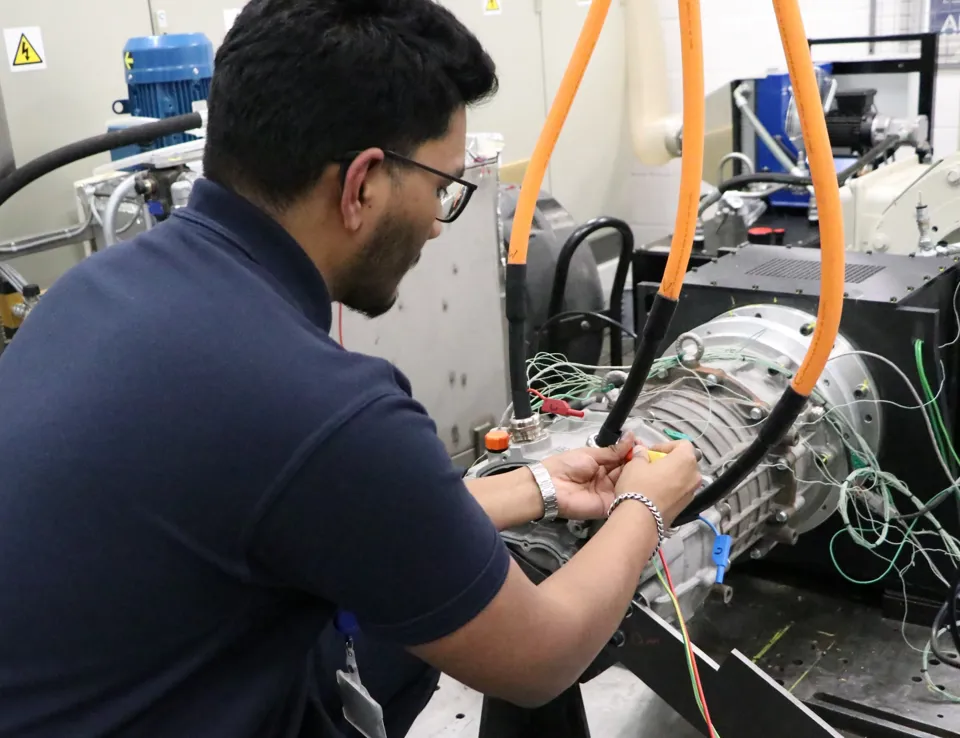
Ricardo’s hydrogen fuel cell module successfully reaches full power
03 February 2025
Ricardo, a global strategic, environmental, and engineering consulting company, today announces a significant milestone in clean energy innovation with its new high-powered, multi-stack hydrogen fuel cell module technology successfully reaching 393kW of net electrical power, achieved within three months development from initial start-up.
This achievement was made possible due to Ricardo’s virtual engineering toolchain, which reduces physical prototyping costs and risks, accelerates development timelines, and provides a deeper understanding of system behaviours under diverse conditions.
Initially developed as part of the Sustainable Hydrogen Powered Shipping (sHYpS) Horizon Europe project for the maritime sector, Ricardo’s multi-stack hydrogen fuel cell module is designed to deliver high energy output with zero emissions. Its modular architecture integrates multiple fuel cell stacks to provide unmatched power density, and scalability while meeting the evolving energy demands of diverse applications, such as maritime, stationary power generation, rail and off-highway.
"This is a pivotal moment for hydrogen technology," said Andy Ennever, Ricardo Global Head of Fuel Cells. "By reaching this milestone and completing a full transient ship operation test cycle, our multi-stack hydrogen fuel cell technology demonstrates hydrogen's potential as a clean energy source. It also showcases Ricardo’s expertise in designing and engineering the fuel cell module entirely in-house within the timeframe set out by Horizon Europe and achieving sustained maximum power after just three months of development after the initial switch-on.”
To support the adoption of hydrogen technology, Ricardo has also developed a containerised solution, able to combine multiple fuel cell modules, enabling power output to be scaled up to 3MW per container, with the DC-DC power conversion on board, all without sacrificing efficiency or durability. When scaled up to incorporate multiple fuel cell modules housed within two bespoke containers, a total net electrical plant output of 6MW can be delivered. This is sufficient to power a 50,000 tonne 1,000 passenger cruise ship through important zero-emission mission cycles.
ENDS
Notes to Editors
Horizon Europe project “sHYpS” (sustainable HYdrogen powered Shipping)
The prototype technology is a work package in the Horizon Europe project “sHYpS” (sustainable HYdrogen powered Shipping) www.shyps.eu, co-funded by the European Union and Innovate UK. sHYpS aims to support the decarbonisation of the shipping industry.
The sHYpS project is co-funded by the European Union under Horizon Europe, the European Union’s research and innovation programme under Grant Agreement Number 101056940. The consortium of members represents 5 European countries: Italy, France, Czechia, Germany, Norway and UK. UK participants are supported by UK RI grant numbers 10038162 (Ricardo UK) and 10039049 (Lloyd’s Register). Views and opinions expressed are however those of the authors only and do not necessarily reflect those of the European Union or Innovate UK. Neither the European Union nor Innovate UK can be held responsible for them.

![]()

About Ricardo
Ricardo plc is a global strategic, environmental, and engineering consulting company, listed on the London Stock Exchange. With over 100 years of engineering excellence and employing close to 3,000 employees in more than 20 countries, we provide exceptional levels of expertise in delivering innovative cross-sector sustainable outcomes to support energy transition and scarce resources, environmental services together with safe and smart mobility. Our global team of consultants, environmental specialists, engineers and scientists support our customers to solve the most complex and dynamic challenges to help achieve a safe and sustainable world. Visit www.ricardo.com
Technical Notes
The fuel cell module can provide 393 kW net electrical power with a single balance of plant and demonstrates superior world-leading power density of 146 kWe/m3 and 4.0 kg/kWe.
The fuel cell module consists of:
- A clean-sheet module design in a highly dense package, incorporating stacks from Elring-Klinger Plastic Omnium (EKPO) along with the Ricardo anode, cathode, thermal and electrical systems
- An entirely new Ricardo fuel cell balance of plant control system implemented in rapid prototype hardware and developed using hardware-in-the-loop simulation and full hardware testing.
- A marine safety and certification approach which is granted Approval in Principle by Lloyd’s Register for ocean-going applications.
Media contacts:
Sophie Mills
media@ricardo.com




 Follow Ricardo plc for regular updates
Follow Ricardo plc for regular updates




